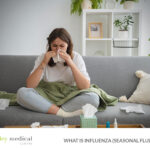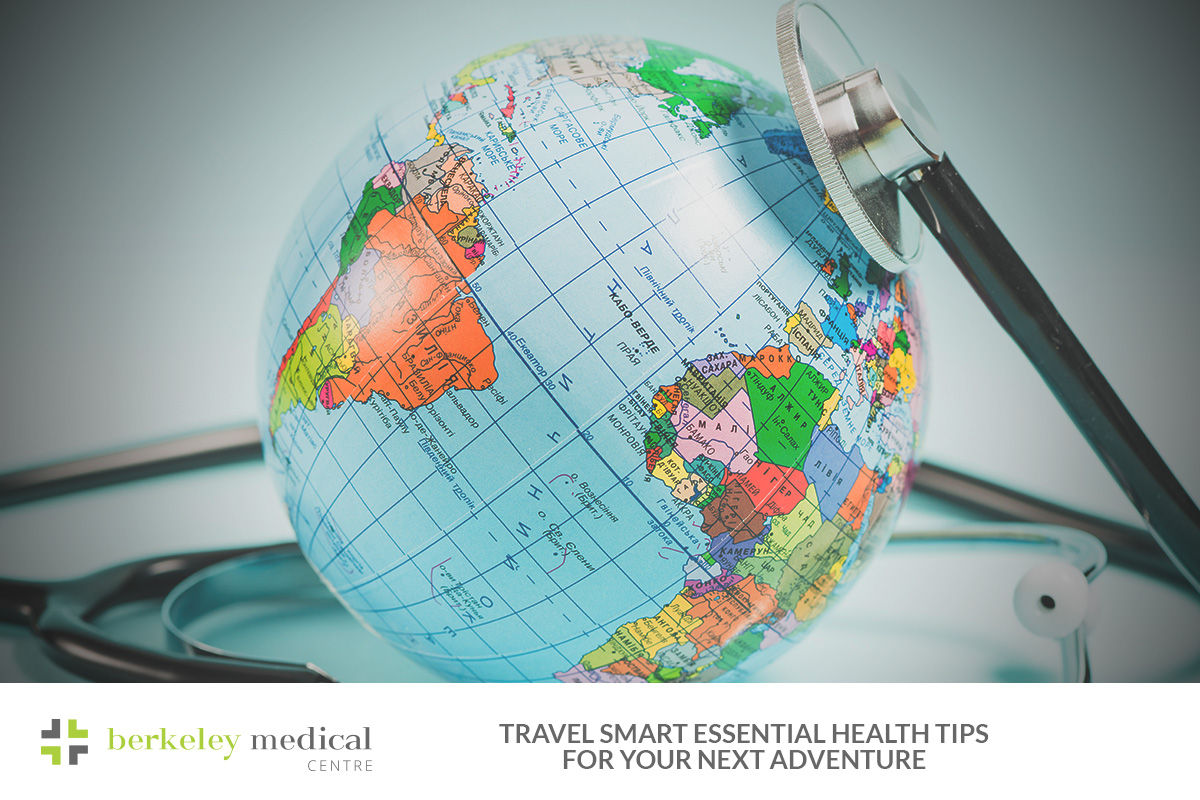Travelling is an exciting adventure, but it can also present challenges to your health. Whether you are exploring the outback, visiting a bustling city, or relaxing on a beach, staying healthy should be a top priority. By taking a few simple precautions, you can ensure your travels are not only enjoyable but also safe and healthy. Here are some essential tips to keep in mind before and during your journey.
Visit Your GP Before You Go
Before embarking on your trip, it is important to see your GP, especially if you are travelling overseas. A pre-travel check-up ensures you are in good health and ready for your adventure. Your doctor can provide personalised advice based on your destination, such as necessary vaccinations, preventive medications, and general health tips.
Discuss any pre-existing conditions you may have and ensure you have enough medication to last the entire trip. If you are going to a region where certain diseases are prevalent, your doctor may recommend vaccines or prophylactic treatments, such as anti-malaria tablets.
Immunisation and Health Precautions
Depending on where you are travelling, specific vaccinations might be required or recommended. For example, travelling to certain tropical regions may require vaccines for yellow fever, typhoid, or hepatitis A and B. Make sure you get these vaccinations well in advance, as some need time to take effect.
Pack a Health Kit
A well-stocked health kit is essential for any trip. This should include your regular medications, along with over-the-counter items like pain relievers, antihistamines, motion sickness tablets, and basic first-aid supplies such as Band-Aids and antiseptic wipes. Do not forget to pack any special items you might need, like insulin or asthma inhalers.
Do not Forget the Essentials
- Sunscreen: Protect your skin with a broad-spectrum sunscreen of at least SPF 30.
- Insect Repellent: Use one containing DEET or picaridin to prevent bites, especially in areas where mosquito-borne diseases are common.
- Hand Sanitiser: Essential for when soap and water are not available.
- Water Purification Tablets: Handy if you are travelling to areas where the water quality is questionable.
Staying Hydrated
Dehydration can sneak up on you, particularly when you are busy exploring new places or spending time in hot climates. Make a habit of drinking plenty of water throughout the day. Carry a reusable water bottle and refill it regularly.
Watch What You Drink
If you are unsure about the safety of the tap water at your destination, opt for bottled water or use water purification tablets. Be cautious with ice in drinks, as it might be made from untreated water. Additionally, limit your intake of alcohol and caffeine, as they can contribute to dehydration.
Eat Well, Stay Well
One of the joys of travel is trying new foods, but it is important to be cautious about what you eat. Foodborne illnesses are a common issue for travellers, especially in regions with different food safety standards.
Tips for Safe Eating
- Stick to Cooked Foods: Choose dishes that are freshly cooked and served hot. Avoid raw or undercooked meats, seafood, and eggs.
- Peel Your Own Fruit: Opt for fruits you can peel yourself, like bananas or oranges, to reduce the risk of contamination.
- Be Selective with Street Food: While street food can be delicious, make sure it is prepared in a clean environment. Busy stalls with a high turnover of food are usually safer options.
Sun Safety
Australia is known for its strong sun, and protecting your skin from harmful UV rays is crucial. Sunburn can ruin a holiday and increase your risk of skin cancer.
Sun Safety Tips
- Apply Sunscreen: Use a broad-spectrum sunscreen with at least SPF 30. Reapply every two hours and after swimming or sweating.
- Wear Protective Clothing: A wide-brimmed hat, sunglasses, and long sleeves can provide additional protection.
- Seek Shade: Avoid direct sun exposure during peak hours, usually between 10 am and 4 pm.
Get Plenty of Rest
Travelling can be exhausting, especially if you are crossing time zones or packing your itinerary with activities. Getting enough sleep is essential for maintaining your health and enjoying your trip.
Beat Jet Lag
If you are flying across time zones, try to adjust your sleep schedule gradually before you leave. On the flight, stay hydrated, and try to sleep according to the destination’s time zone. Once you arrive, spend time outdoors during daylight hours to help reset your internal clock.
Stay Active, but Do not Overdo It
Physical activity is great for your health, but it is important to pace yourself, especially when travelling. Long flights, new environments, and changes in routine can affect your energy levels.
Balance Activity and Rest
Engage in light exercises like walking or stretching to keep your body moving, especially on long flights or car rides. However, listen to your body and avoid overexertion. If you are feeling tired or unwell, take a day to relax and recharge.
Prevent Insect Bites
Insect bites are not just annoying; they can also transmit diseases like malaria, dengue fever, and Zika virus. Protecting yourself from insect bites is crucial, especially in tropical or rural areas.
Bite Prevention Tips
- Use Insect Repellent: Apply repellent to exposed skin, and reapply as needed.
- Wear Long Sleeves and Pants: Covering up can help reduce the number of bites.
- Sleep Under a Mosquito Net: If you are in an area with a high risk of mosquito-borne diseases, use a net treated with insecticide.
Know Your Limits and Stay Safe
Adventure activities like hiking, diving, or skiing can be thrilling, but they also come with risks. Always assess your abilities and the safety of the activity before diving in.
Safety First
Ensure that you are physically prepared for the activity and that you understand the risks involved. If in doubt, seek advice from a local guide or instructor. It is better to be cautious than to risk injury in an unfamiliar place.
Stay Connected and Informed
Finally, make sure someone back home knows your travel plans. Keep a copy of important documents like your passport, insurance details, and emergency contacts both in your luggage and electronically.
Emergency Preparedness
Familiarise yourself with local emergency numbers and the location of the nearest medical facilities. In case of illness or injury, knowing where to go and who to call can save valuable time.
Conclusion: Prioritise Your Health for a Better Travel Experience
Travelling is a wonderful way to broaden your horizons and create lasting memories. By taking steps to safeguard your health—such as visiting your GP before departure, packing a health kit, staying hydrated, eating wisely, protecting yourself from the sun and insects, getting enough rest, and knowing your limits—you can ensure that your travels are not only enjoyable but also healthy and safe.
So go ahead, explore the world with confidence, knowing you have got your health covered every step of the way! Book GP Appointment Today!
Explore health care services







